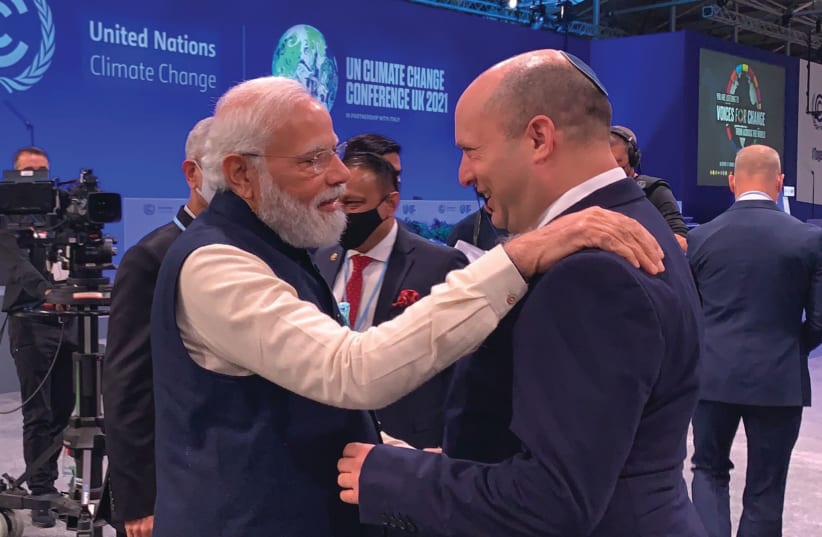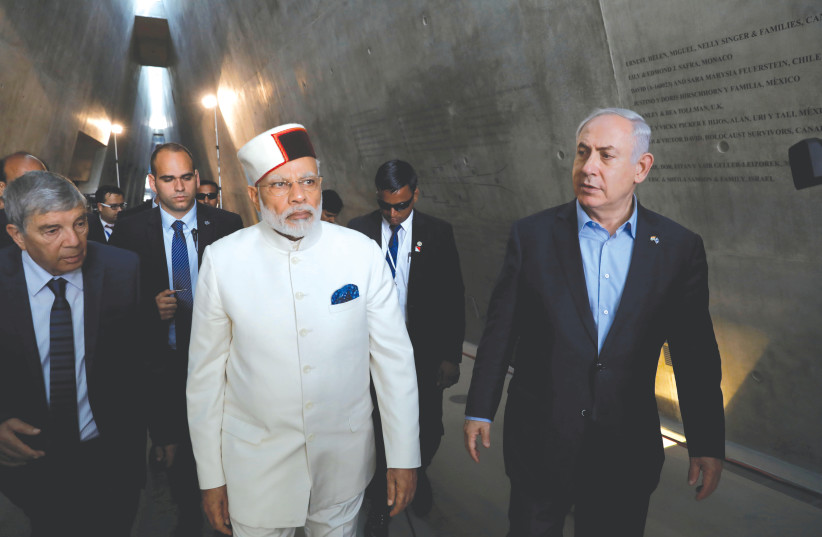The relationship between India and Israel has been thriving recently. The world watched the “bromance” between former Israeli prime minister Benjamin Netanyahu and Indian Prime Minister Narendra Modi blossom, as the two leaders paddled in the sea and laughed. Now that Netanyahu is gone, India will certainly look to build on its relationship with Israel and Naftali Bennett.
External Affairs Minister Subrahmanyam Jaishankar’s visit last week was groundbreaking for many reasons, and while many reacted happily, some nations would have been wary. For countries that have had full diplomatic relations for a relatively short time, the Indian foreign minister was incredibly enthusiastic about bilateral relations but also new multilateral possibilities. The new quadrilateral alliance with the United States of America and UAE sends a message to China and reaffirms the US commitment to the region. China has long posed a significant economic challenge to India, which threatens to engulf many of India’s border regions. A strong alliance between these four countries is a clever geostrategic partnership and may dampen China’s economic expansionism in the Middle East.
These have been important steps, not just for the obvious economic benefits. Israel and India have historically had a relationship that has been centered around defense and security. India has benefited from significant military collaboration and support from Israel. By building upon a solely military alliance, the political friendship of the two countries is opened from the secrecy of defense liaison. The transparency allows for a positive outlook and provides a wealth of opportunities for businesses and investment.
It is worth remembering that diplomatic relations between the two nations were established only in 1992. India’s policy towards Israel thawed significantly after the collapse of the Soviet Union. India and Israel worked closely together, but it took until 2017 for an Indian prime minister to visit Israel.
As the 30th anniversary of diplomatic relations approaches, the frequency of high-level state visits indicates that diplomatic relations are continuing to flourish. Israeli Foreign Minister Yair Lapid did make the comment that India brought “new opportunities for co-operation.” Jaishankar met with Israeli business leaders and listened closely to their concerns regarding the levels of bureaucracy that foreign businesses have to navigate in India. This level of discourse is extremely promising for business leaders across the two countries.
Both Israel and India have also committed to resuming free trade agreement talks in November. This is an important step toward consolidating India’s position, not least as a global player in technology and innovation and bodes well for further trade deals with other countries, like Canada. For entrepreneurs in all industries, this increases the incentive to collaborate with Israeli partners. Merchandise trade and exports will certainly grow under the right conditions and investment will seem more attractive.
During this visit, Israel has also joined the International Solar Alliance (ISA), an Indian initiative to reduce dependence on fossil fuels. As we get closer to COP26, the two powers are showing that they are willing to invest in our shared future, supporting sustainability and further allying themselves with green tech initiatives in other countries.
Mutual recognition of COVID-19 vaccine certificates was an important move, especially for those of us looking to travel for business. It also provides hope for healthcare and MedTech collaborations. During the pandemic, Israeli scientists have been collecting samples from over 20,000 Indian patients, in the hopes of using the data to create rapid testing methods. Collaboration is not just a benefit to the business communities, but new partnerships in our shared humanitarian and scientific efforts could have a global impact.
Business and science are important spaces, but cross-cultural collaboration is key to unlocking a wider social exchange, not just government treaties. In November 2019, Drive became the first Hindi movie to be filmed in Israel, following its shooting in Tel Aviv. The film was given funding by the Israeli Ministry of Tourism and the Prime Minister’s Office, in the hope that featuring Israel to the wider Indian population would lead to a boost in tourism.
In 2020, the two countries signed a cultural agreement to further strengthen the ties between their peoples and to promote understanding of each other’s cultures and religions. This agreement spans art, archaeology, literature and language, emphasizing participation in the wider societal sphere. Cultural understanding is key to furthering relationships between nations, it enables cooperation and teaches us to recognize our shared humanity.
The key to stopping racial and religious hate is to encourage dialogue. Of course, there are many differences between these two ancient cultures, but there are many significant synergies: a history of suffering and suppression has informed both cultures, and in their relatively short histories Israel and India both became the states they are today in the wake of the Second World War. Both nations have become mighty powers to contend with on the global stage, pioneers of science, technology, and medicine. Israel and India are showing the world that, working together, they can achieve wonders.
The writer is founder and CEO of the Chishti Group – a global conglomerate operating in a number of industries, including shipping, farming, asset management, IT, infrastructure, pharmaceuticals, fashion and commodities. He is also an author and thought leader, promoting Holocaust awareness in the Muslim community.

